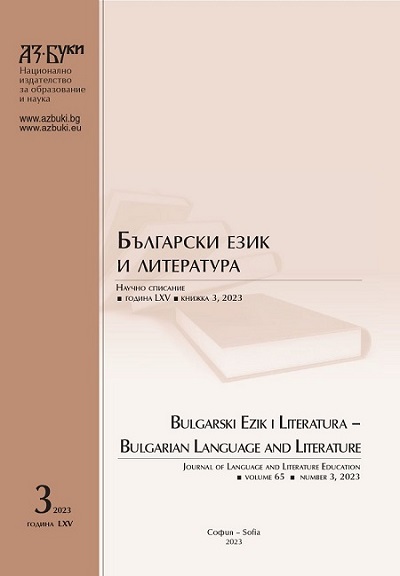Литература и кино - казус от времето на НРБ
Literature and cinema: a case from the the People's Republic of Bulgaria
Author(s): Inna PelevaSubject(s): History, Fine Arts / Performing Arts, Social history, Film / Cinema / Cinematography, Sociology of Art
Published by: Национално издателство за образование и наука „Аз-буки“
Keywords: literature and cinema; culture in the People’s Republic of Bulgaria; Yordan Radichkov; Georgi Markov; Federico Felini
Summary/Abstract: The paper elaborates on a specific contradiction in the cultural policies of the People’s Republic of Bulgaria. Even after 1956 (year of the April Plenum of the Central Committee of the Bulgarian Communist Party, which initiated a post-Stalinist liberalization in the government’s treatment of people in the creative sphere), art-making practices remained under the communist doctrine’s institutional pressure. At the same time, over the 60s, the 70s, and the 80s, the government imported a substantial number of cultural products from the West. In other words, a few decades before 1989 – the year associated with the fall of communism in Bulgaria – two tendencies, controlled by the communist authorities, co-existed in Bulgaria’s public sphere: socialist realism was constantly re-asserted, but there was also an attempt at dialogue with the cultures behind the Iron Curtain. The upshot of this ambivalent attitude of the government is particularly intriguing when it comes to familiarizing the Bulgarian public with foreign cinema. Not only did movies from the West mold perceptions, desires, and behavioral models that differed from those officially prescribed; these movies (especially when created by world-famous directors) have left their imprint on totalitarian-era literary texts which we value to this day.
Journal: Български език и литература
- Issue Year: 65/2023
- Issue No: 3
- Page Range: 239 - 251
- Page Count: 13
- Language: Bulgarian
- Content File-PDF

